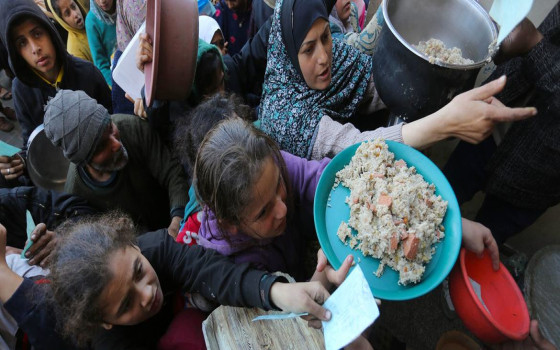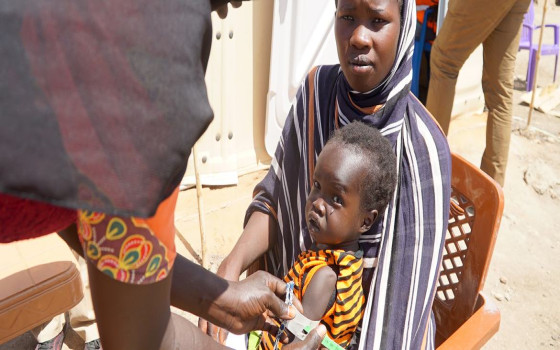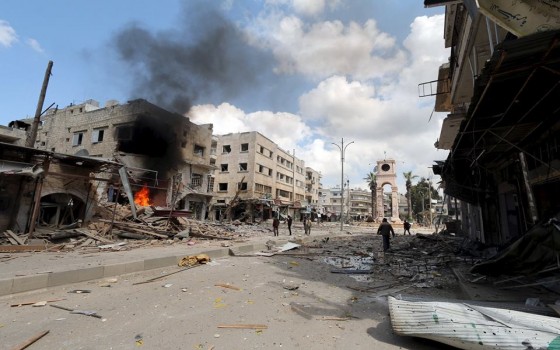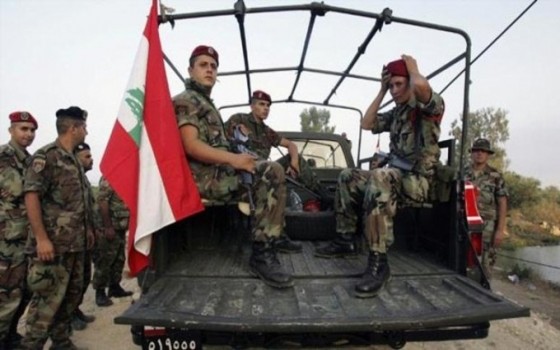Sudan, Gaza and the risk of famine.. UN experts: Sudan faces an unprecedented famine that requires immediate global attention.. In Gaza: 91% of the population will suffer from severe food insecurity

- Europe and Arabs
- Friday , 18 October 2024 9:56 AM GMT
Gaza - Khartoum: Europe and the Arabs
The risk of famine will continue throughout Gaza during the winter unless the fighting stops and more humanitarian aid reaches families, according to a recent assessment of food security in the Strip, which predicted that 1.95 million people in Gaza (91% of the population) will face severe food insecurity (Phase 3 or worse out of 5 stages of food security classification). According to the United Nations daily news bulletin.
The Integrated Food Security Phase Classification assessment was conducted by experts from 16 UN agencies and non-governmental organizations. The classification divides the food security situation into five stages, the most severe of which is Phase 5.
The assessment stated that the war that has been going on for more than a year in Gaza has destroyed livelihoods, reduced food production, and severely restricted commercial and humanitarian supply lines.
The Integrated Classification - which uses global scientific standards - said that 345,000 people will face catastrophic levels of hunger (Phase 5), and 876,000 people will suffer from emergency levels of hunger (Phase 4 of the classification).
The report found a slight decrease in the severity of food insecurity in September and October 2024 compared to the last report in June. This is largely due to increased humanitarian assistance in the governorates of North Gaza, Gaza City, Deir al-Balah and Khan Younis between May and August.
But the report warned that this slight improvement will be short-lived, due to ongoing fighting and a sharp decline in humanitarian and commercial flows since September. This is expected to push most of the population into severe food insecurity and worsen acute malnutrition levels during the winter.
UN Secretary-General António Guterres expressed concern about the report’s findings that widespread displacement and restrictions on humanitarian aid flows mean that people in Gaza are facing catastrophic levels of hunger.
He warned that “famine is looming, and it is unbearable.” He stressed the need to open crossing points into Gaza immediately, remove bureaucratic obstacles, and restore law and order so that UN agencies can deliver life-saving humanitarian assistance.
On the other hand, the UN Office for the Coordination of Humanitarian Affairs warned that Israeli military operations in northern Gaza are putting tens of thousands of civilians at grave risk. The Office reiterated the need to protect civilians in the north and throughout the Strip.
It said that offensive military operations in northern Gaza are also choking people’s access to basic survival supplies, including water. Heavy fighting, evacuation orders and loss of access to a large number of water, sanitation and hygiene facilities in northern Gaza have put a number of water and wastewater collection systems out of service.
In central Gaza, the United Nations and its partners are working to prepare for winter and take urgent steps to mitigate the impact of flooding. These efforts include repairing wastewater pumping stations in Deir al-Balah, removing solid waste and cleaning sewage canals in Nuseirat camp.
Regarding the second round of polio vaccinations, the World Health Organization reported that the vaccination campaign in central Gaza concluded (Wednesday) after more than 181,000 children were vaccinated against the disease and more than 148,000 children received vitamin A supplements to boost their immunity.
Eight health facilities in central Gaza will continue to provide polio vaccine to families who were unable to vaccinate their children in the past three days. The second phase of the round will begin in southern Gaza on Friday before moving to northern Gaza.
Sudan
UN human rights experts have warned that 97 percent of internally displaced people in Sudan, as well as civilians who have remained in their homes, are facing severe levels of hunger.
In a statement on Thursday, the independent experts accused the Sudanese Armed Forces and Rapid Support Forces of using “starvation tactics” against 25 million civilians in the country. “Never before in modern history have so many people faced famine as in Sudan today,” they said.
“The world must wake up to the largest modern famine currently unfolding in Sudan,” the experts said. “We call for an immediate ceasefire and a political solution to end this horror and provide urgent assistance. We have repeatedly warned the authorities in the past, urging them to take action to prevent this unfolding catastrophe, but the situation has now reached critical levels that require immediate global attention.”
Zamzam camp in North Darfur, currently home to half a million displaced people, is facing some of the worst conditions. The threat of famine looms in other camps in El Fasher. According to the experts, more than 8.4 million people have been forcibly displaced from their homes to locations within Sudan or to neighboring countries, “which poses a serious threat to most of their human rights.”
In order to stop the famine in Sudan, the UN experts called on the Rapid Support Forces and the Sudanese Armed Forces to immediately stop obstructing the delivery of aid in Sudan through bureaucratic and administrative barriers and attacks on local responders. They also called on foreign governments to stop financial and military support to the Sudanese Armed Forces and the Rapid Support Forces.
The UN experts stressed the need to allow humanitarian organizations to expand their operations and deliver essential food and medicines.
The experts said: “It is crucial that humanitarian organizations use all available channels to deliver humanitarian assistance to ensure that assistance reaches the most vulnerable populations. Both the Sudanese Armed Forces and the Rapid Support Forces, along with their foreign backers, are responsible for what appears to be the deliberate use of starvation, which constitutes crimes against humanity and war crimes under international law.”














No Comments Found